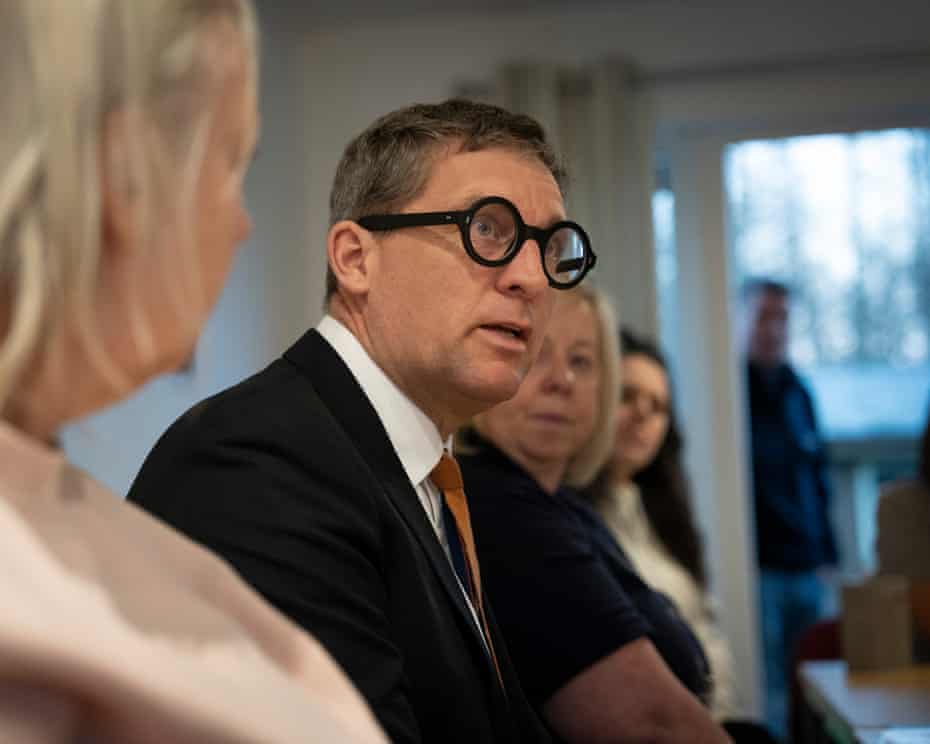Organised criminal gangs wield such power over prisons across England and Wales that they are corrupting staff, fuelling violence, and enforcing drug debts behind bars, according to prisons minister James Timpson, who says the scale of the problem is so severe it “keeps me awake at night”.
In a candid interview with The Guardian, Timpson revealed that a “beefed up” counter-corruption unit had prosecuted 37 prison staff members last year alone, with authorities intensifying efforts to sever the growing ties between criminal gangs and prison officers.
“Serious organised crime is a big problem, a huge problem,” Timpson said. “It’s one of the things that keeps me awake at night because of the impact it has on a prison’s environment from drugs, debt, violence, and everything that goes with that.”
His comments come amid growing concern from prison watchdogs that criminal groups are asserting control within jails, a claim Timpson has pushed back on, even as criminologists warn that gangs are increasingly targeting and compromising inexperienced prison officers.
“They corrupt both men and women to bring in drugs,” Timpson said. “A lot of these serious organised criminals are in their cells at night, but they’re actually very wealthy and connected with major illegal operations.”
To combat this, the Ministry of Justice has ramped up cooperation with police forces and the National Crime Agency, with 20 specialist investigators now embedded in HM Prison and Probation Service to track down internal collaborators and intercept contraband.
Beyond corruption, Timpson is also pushing for technological innovation. He revealed that more than 30 companies, including Microsoft and Google, are set to meet with the government to explore how tech, particularly artificial intelligence, could help manage offenders in the community and reduce violence in prisons.
“Technology can really impact what’s happening in prison, but most importantly in probation,” he said, highlighting how AI might relieve overworked probation officers bogged down by repetitive tasks such as sourcing housing for released inmates.
Timpson, the former chief executive of the family-run Timpson Group, took up his ministerial role in July 2024 during a crisis point in the prison system, which has faced chronic overcrowding. Under his tenure, the government authorised early release schemes to create room for new inmates.
Despite persistent overcrowding, with fewer than 1,000 spare places and more than 88,000 people in custody, Timpson expressed confidence that further emergency measures would not be required this year.
However, infrastructure remains a significant challenge. “We’re spending £500 million at the moment on dilapidations,” he said. “A lot of that is just keeping capacity there.” He cited the crumbling condition of older Victorian prisons as a particular drain on resources.
UK minister addresses ongoing contract with private security company
In a controversial decision, Timpson also addressed the government’s ongoing contract with private security company Serco, which oversees the tagging of offenders. Despite a recent Channel 4 Dispatches investigation revealing that some released prisoners remained untagged for months, he indicated the contract would not be withdrawn.
“What I’ve learned is that procurement is pretty much what it is. Our job is to keep pressure on, call it out when it’s not right, but work with them to solve the problems,” he said. “Things have improved a lot, but I’m still not happy.”
A sentencing review led by former justice secretary David Gauke is expected to be published next week, likely recommending increased use of tagging and community sentences, a shift designed to ease pressure on the prison estate.
As the justice system navigates this critical juncture, Timpson’s remarks offer a sobering glimpse into the scale of the challenges facing Britain’s prisons and the urgency of reform.



